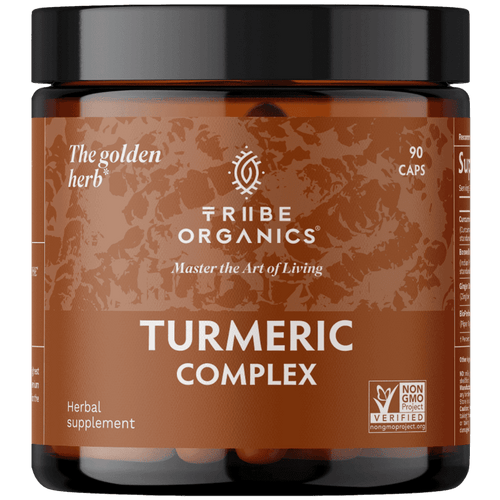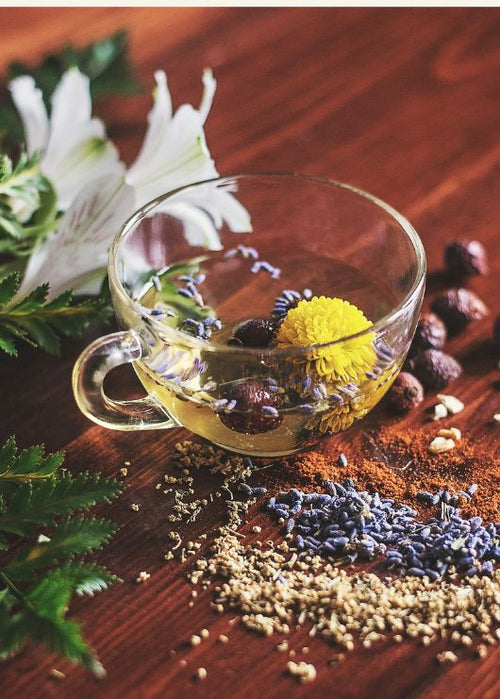Gastroesophageal Reflux Disease - GERD for short - occurs when occasional acid reflux turns chronic. Acid reflux itself happens when the contents (predominantly stomach acid) of one's stomach travel back up the food pipe/esophagus.
Acid reflux can turn into a serious health issue by developing into esophageal cancer or Barrett's esophagus (though this is rare). In the short term, it causes heartburn and tissue damage (if it happens consistently), so you should act as quickly as possible to avoid such irritation.

Many people around the world suffer from gastroesophageal reflux, which happens due to overeating before sleep, drinking alcohol, eating spicy foods, and other reasons. Suffering from the chronic variant of acid reflux - the gastroesophageal reflux disease - comes with a higher chance of potential health risks.
There are many acid reflux solutions from traditional or alternative medicine that can (or are claimed to be able to) reduce acid reflux symptoms and ultimately help the person get rid of it. One of these methods involves the use of turmeric tea and the use of turmeric as a spice.
Taking turmeric is said to treat acid reflux and other gastric disorders, but there have been few clinical trials that support these claims. Natural remedies are often wrought with misinformation, making certain 'medicine' invalid.
So, is using turmeric for acid reflux useful, and can it help with other acid reflux symptoms such as esophageal inflammation, digestive tract issues, and stomach ulcers (in rare cases)? Herbal medicine followers believe so, but the truth is pretty different. Here's an overview:
Does Taking Turmeric for Acid Reflux Help?
Turmeric's health benefits are bountiful, including anti-inflammatory effects, lower blood sugar, and lower blood pressure. Turmeric is also filled with antioxidant compounds, which make it a potent protectant.
However, using turmeric for acid reflux isn't as effective as one would think. Turmeric does help protect mucosal cells found in the esophagus, but this can differ from individual to individual.
It's worth noting that, although there haven't been a lot of clinical studies on the effects of turmeric for acid reflux, its main ingredient - Curcumin - has been studied better. Curcumin protects against inflammation, arthritis, issues with the gastrointestinal tract, and even anxiety.
The few turmeric studies that have been conducted show that turmeric powder is capable of alleviating acid reflux symptoms, but the strength of its effects hasn't been precisely determined. This can only be done by comparing clinical treatments for acid reflux with turmeric.
So, the short answer regarding whether or not turmeric can be used to treat acid reflux is - yes, it could. The long answer is that we need more information and knowledge on the subject to make an accurate claim.
With that said, there are no negatives to giving it a shot. Even if it doesn't help with acid reflux, its anti-inflammatory properties will improve your digestion and liver function and overall gastrointestinal health.
How to Treat Acid Reflux with Turmeric
Before you make the decision to use turmeric for acid reflux, make sure to discuss your symptoms with a doctor. They may give you a better alternative. In any case, going down the alternative therapy route should be used as a last resort or if you are in a rush.
First off, if you are pregnant and/or breastfeeding, you'll need to limit the amount of turmeric you consume because the body absorbs turmeric quickly and it can have an effect on the fetus. With that out of the way, here's how you can take turmeric to deal with acid reflux:
One option is to purchase turmeric supplements that have only recently become popular for various reasons. However, the most basic way is by using turmeric powder to spice up your food or to make turmeric tea. Both of these options rely on the usage of turmeric powder.
The supplements are a great choice if you don't like how turmeric tastes or if you can't find it in the store. Additionally, it might be worthwhile to combine black pepper with turmeric, which makes the body extract Curcumin from the turmeric and absorb it better.
Black pepper extract is also a good choice to increase turmeric's absorption because the active ingredient in black pepper is piperine which stabilizes the Curcumin in one's body.
In short, anecdotal evidence suggests that turmeric, alongside black pepper, is a great combination for treating acid reflux. Be wary that some sources claim that turmeric makes acid reflux worse so if it doesn't work for you, seek other medication for esophageal and gastric disorders.
Are There any Health Risks Associated with Turmeric Usage?
Although turmeric itself doesn't necessarily come with health risks, it can be risky to take it in certain situations. These include:
- People who have experienced kidney diseases or have a history of kidney stones
- You are allowed to take a small amount of turmeric but not too much because turmeric releases oxalates after breaking down in the body. High levels of oxalates can lead to kidney stone formation.
- Taking too much turmeric
- Even if you're completely healthy, too much turmeric will cause diarrhea. Yikes.
- People who suffer from gluten intolerance and celiac disease
- There are certain turmeric manufacturers that increase the quantity of their product by pumping it with gluten-based fillers. These shady manufacturers usually don't disclose such information on the label so make sure you always purchase turmeric from reputable sources.
- Turmeric alongside anticoagulant medications
- Turmeric is a natural blood thinner and can react with other blood-thinning medications such as Warfarin and Aspirin. You may notice your skin bruising and bleeding more easily if you've consumed turmeric alongside blood-thinning medications. Because turmeric can affect blood clotting, it's best if you consult a doctor before deciding to take larger doses of turmeric.
Traditional Treatments for Acid Reflux Alleviation
Certain people will not be able to use turmeric for acid reflux. Even though this natural remedy relieves some effects of GERD, some people may be allergic to it, or they simply can't take it for other reasons. If this is the case, some of the standard treatments for acid reflux are:
Proton Pump Inhibitors (PPI)
This type of treatment is available over the counter or by getting a doctor's prescription. They function by reducing the amount of acid in the stomach, allowing the esophageal lining to heal.
Antacids
Antacids are a common choice for dealing with acid reflux and can relieve heartburn in afflicted individuals. They are only effective for mild symptoms and shouldn't be taken daily. Some individuals may experience constipation or diarrhea after taking antacids.
H2 Blockers
H2 blockers function similarly to PPIs in the sense that they limit the amount of acid the stomach produces. H2 blockers are also available with a prescription or over-the-counter. In most cases, PPIs are more effective at dealing with gastroesophageal reflux disease - GERD.
How to Reduce Acid Reflux in Non-Medicinal Ways
It's also worth noting that black pepper extract is also a viable option for ingestion, but it needs to be taken in moderation. The best absorption levels occur when an individual takes turmeric or piperine dietary supplements. Some people experience acid reflux due to certain lifestyle choices that are some of the main causes of acid reflux. Others may experience allergic skin reactions to conventional and alternative treatments for acid reflux.
If you want to stay clear of treatments, then making these lifestyle changes are necessary to deal with hydrochloric acid reflux:
- Managing body weight and increasing physical activity
- Giving up smoking
- Making dietary changes
- Getting rid of the following foods or drinks may help: chocolate, fatty foods, alcoholic beverages, mint, spicy foods, acidic foods, and coffee to name a few
- Eating at least 4 hours before going to sleep
Consulting a Specialist or Doctor
In most cases, people often seek alternative medicine before visiting a doctor. Certain situations can be solved with alternative therapy but it's best to consult a specialist who will determine the best course of action.
Although some studies have shown that Curcumin prevented esophageal inflammation, there still isn't enough evidence to quantify turmeric's anti-inflammatory properties and dealing with acid reflux. As such, individuals shouldn't expect this method to have any impact.

Final Words
While most people are optimistic about the effects of turmeric on acid reflux esophagitis health issues, there's no guarantee that it will help. However, initial studies (non-clinical) are promising.
And, when it comes to turmeric treatment, there are a couple of paths you can take. If you aren't allergic and are allowed to take turmeric, the best way of absorbing its anti-inflammatory properties is by drinking turmeric tea. Otherwise, organic turmeric extract supplements are a great choice.
The truth is that acid reflux can be dealt with in many ways, whether they involve traditional or alternative medicine. The main issue is finding the best method for each individual since the effects may vary.
In any case, if you plan on using turmeric for acid reflux, we hope it has an effect and eliminates the problem completely. Good luck!






